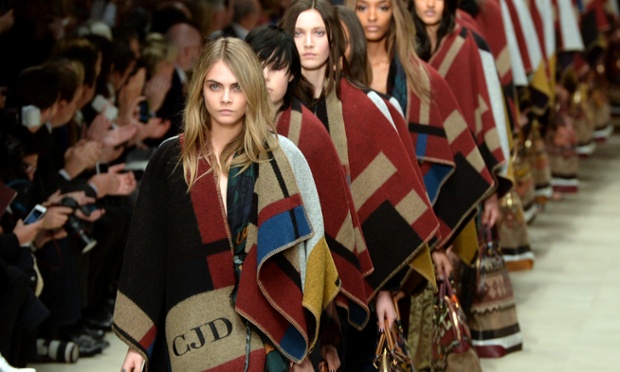
Paris, France | AFP |
The alleged “sadistic” mistreatment of scores of models who were forced to wait in a dark, cramped staircase at a Paris fashion week casting has sparked fresh criticism of how the industry functions.
With fashion already under intense scrutiny over under-age and overly thin models, the case made headlines around the world after US casting director James Scully broke ranks to denounce two rivals who he claimed were “serial abusers”.
The furore has also highlighted how vulnerable even relatively top level models can be at “cattle call” castings for the elite catwalk shows in Paris, New York and Milan.
At least 150 models were forced to wait for three hours or more in a hot and airless staircase for the Balenciaga show casting on Sunday, said Scully, who claimed the agents shut the door and turned off the lights when they went to eat.
The label, one of the most influential on the Paris catwalk, sacked the casting agency on Tuesday hours after Scully took to Instagram to protest about the “sadistic and cruel” treatment of the women.
But Maida Gregori Boina, the casting director involved — a major backstage figure on the Paris scene — hit back Friday, blaming Balenciaga and denying the allegations as “inaccurate and libellous”.
“We provided the most comfortable accommodations allowable based on the facilities provided,” she said in a statement.
Boina denied that she had turned off the lights or locked the door on the waiting models, blaming an electricity cut late on Sunday at Balenciaga’s Paris headquarters.
Models who were left in the dark told AFP that girls had been forced to wait in the stairway over the course of the casting, with the only toilet locked.
– ‘Thing have to change’ –
“It was the worst ever casting I had,” said former Gucci model Anna Vivchar, 19, who lost her place when she had to go to the toilet. “Everyone was nervous and hot.
“I am very grateful Balenciaga did what they did. They also apologised and sent us flowers.”
Fellow Ukrainian Elizabeth Pentsarska, 17, who has walked for Chanel, said with models rushing between up to 13 castings a day “normally you wait only maybe half an hour”.
In a world where a code of silence often rules, and where models can be too afraid of losing work to speak up, insiders say the swift sacking of such a high-profile figure has sent tremors through the industry.
Isabelle Saint-Felix of Synam, the French model agency union, said the dismissal was a deterrent to those who would “abuse their power” over models.
“It is a warning to others and it could be an opportunity to rectify the situation. We have been warning for four or five years about the deteriorating situation.
“Things have to change. Sometimes we let things go too far before we open our eyes to what is going on,” she said.
Synam had warned the French Couture Federation for years about “models being disrespected, worsening conditions and more and more demands,” she said.
– ‘Concerns trivialised’ –
Sara Ziff, a former top model who heads the New York-based Model Alliance, said the problem runs deep.
“The industry is completely incapable of regulating itself. It is a little bit sad that we are reduced to naming and shaming. Really, we should have some standards in our industry.”
Scully, who raised the alarm over the Balenciaga casting, sits on the board of the Alliance, which campaigned for child labour laws to be applied to underage models in New York.
He said the industry had been “hijacked by a small group of stylists, casting directors and photographers who seem to dislike women”.
Ziff, who directed the acclaimed behind-the-scenes fashion documentary “Picture Me”, asked why the Balenciaga models were not better protected by their agents. “Aren’t they supposed to be looking out for their interests? I think that’s the real story.”
She said models’ concerns were often “trivialised and dismissed”.
“It can’t be that bad, people think. It is often not seen as work but more a privilege, but when you see what goes on behind the scenes there is nothing glamorous about it.
Working conditions in France tend to be better than in the US, Ziff said.
“In Paris, at least models are considered employees of their agents and their clients. In the US, we have almost no labour protection.”
 The Independent Uganda: You get the Truth we Pay the Price
The Independent Uganda: You get the Truth we Pay the Price


